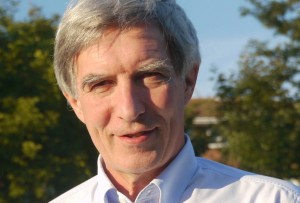Date: 19th of May- 23rd of May
Time: 7.30pm
Venue: Fisher & Paykel Appliances Auditorium (260-115),
Owen G Glenn Building, 12 Grafton Road,, Auckland
Cost: Free
A series of three lectures by Kate Pickett and Richard Wilkinson, the authors of ‘The Spirit Level: Why Equality is Better for Everyone,’ will be held at the University of Auckland next month.
Kate Pickett is a Professor of Epidemiology at the University of York and a National Institute for Health Research Career Scientist.
Her research focuses on the social determinants of health, particularly the influences of factors including income inequality, social class, neighbourhood context and ethnic density on outcomes such as mortality and morbidity, teenage birth, violent crime, obesity, social mobility and health-related behaviours.
Richard Wilkinson has played a formative role in international research on the social determinants of health and on the societal effects of income inequality. He is Professor Emeritus of Social Epidemiology at the University of Nottingham Medical School, Honorary Professor at University College London and a Visiting Professor at the University of York.
Lecture 1: Evidence of damage
Monday 19 May – 7.30PM
Using evidence from their own and many other people’s research, Wilkinson and Pickett will show that a wide range of health and social problems are much more common in societies with bigger income differences between rich and poor. The same pattern can be seen at all levels of economic development regardless of culture. Whether you look at violence, drug addiction, lack of community life, mental illness, or low levels of child wellbeing, more unequal societies come close to being socially dysfunctional. Problems such as these may be anything from twice as common to ten times as common in more unequal societies because, rather than being confined to the poor, the effects of inequality extend to the vast majority of the population.
Lecture 2: The causal processes
Wednesday, 21 May – 7.30pm
Much of the evidence that more unequal societies do less well is correlational. This lecture will show that the relation between inequality and social dysfunction goes to the heart of social relations and has to be treated as causal. Developments in neurology, primatology, anthropology and evolutionary psychology now make it possible to identify the causal psychosocial processes involved. Rather than seeing the effects of income inequality as a new form of social causation, the Professors will suggest how it fits into the more familiar effects of social stratification.
Lecture 3: The solutions
Friday, 23 May – 7.30pm
Wilkinson and Pickett will start this lecture with a discussion on the forces behind major changes in income distribution in the past and go on to suggest how inequality can be reduced in the future. The Professors will suggest that plans for a more equal society are an essential part of the transition to environmental sustainability. By extending democracy into the economic sphere and into our working lives, they envisage that it will be possible not only to embed greater equality more fundamentally into our societies, but also to achieve higher standards of sustainable human wellbeing.
Contact information available through the University of Auckland



